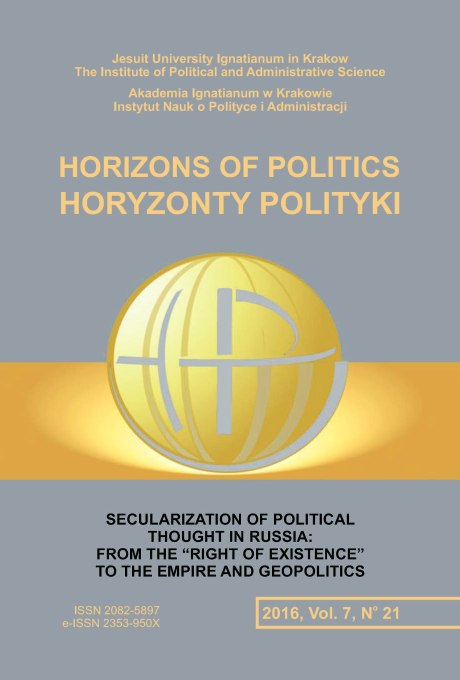Competitiveness of the European Union – expectations, reality and challenges towards 2020
Competitiveness of the European Union – expectations, reality and challenges towards 2020
Author(s): Magdalena TusińskaSubject(s): Politics / Political Sciences, Politics, EU-Approach / EU-Accession / EU-Development
Published by: Uniwersytet Ignatianum w Krakowie
Keywords: competitiveness;Europe 2020;the European Union;economic governance
Summary/Abstract: RESEARCH OBJECTIVE: The aim of this paper is to document the performance of the EU and its Member States in the light of the Europe 2020 strategy, while also painting a broader picture of the context. Its purpose is not to strictly predict whether the 2020 targets will be reached, but also to consider the consequent circumstances.THE RESEARCH PROBLEM AND METHODS: The problem of this publication is the analysis of competitiveness of the EU and its Member States. The article uses traditional literature studies, as well as an analysis of documents, reports and statistics.THE PROCESS OF ARGUMENTATION: The line of reasoning consists of four sections. The opening one provides a concise overview of the key definitions. Subsequently, the post-crisis instruments of building competitiveness are discussed. The third section juxtaposes the Europe 2020 targets and reality. The last part includes a reflection on the current challenges concerned mainly existing division in the UE.RESEARCH RESULTS: Despite of having new post-crisis competitiveness tools, some of the targets will not be achieved by 2020. Moreover, there are countries which have already over-performed, whereas some of the Member States significantly fall behind their targets.CONCLUSIONS, INNOVATIONS AND RECOMMENDATIONS: The capacity to deal effectively with the implementation of necessary policies and reforms in the EU is not enough. Heterogeneity of the Member States involves not only the level of competitiveness, but can be considered in many aspects. The failures seem to be a result not only weak economic performances, but are also determined by the crisis of solidarity. Working on this challenge ought to involve a larger reflection on psychological aspects and how to bring citizens along on the next stages of the European (economic) integration process.
Journal: Horyzonty Polityki
- Issue Year: 7/2016
- Issue No: 21
- Page Range: 185-204
- Page Count: 20
- Language: English

